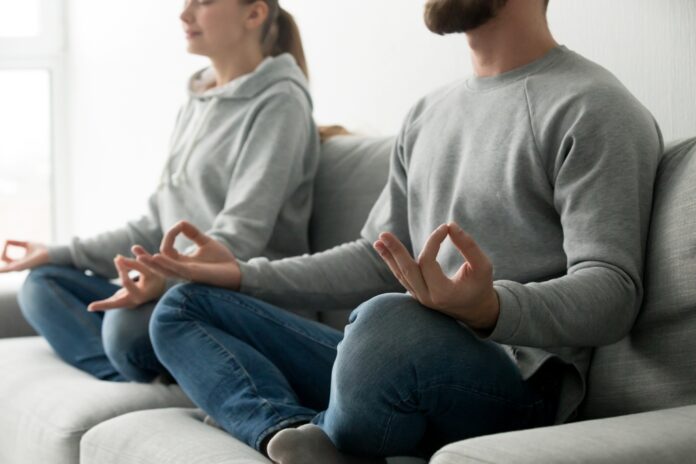You’re not alone if isolation and the fear of becoming sick is giving you the blues. Deep down, we know it’s not healthy for us to be alone and fearful. Science backs up our intuition: living under constant stress limits our creative, problem-solving brains to flight-fight-freeze instincts, where every interaction with people is gauged as a threat to safety.
It’s easy to overlook mental self-care when fear of survival is number one. That’s why it’s really important to make manageable, regular commitments to mental health. It’s deeply intertwined with physical health. Meditation is one of many tools for mental-self care. It’s free, can be done anywhere, anytime, with no special equipment.
Meditation is sometimes misunderstood. Some people tell me they can’t clear their heads or sit still. They’d rather do exercise to relieve stress, or they don’t think it fixes problems. Meditation is not emptying our minds, forcing ourselves to relax, and pretend everything is okay. Nor is it a planning and strategy session, or a replacement for exercise.
Today, try this short, easy meditation: sit quietly and count ten deep, easy breaths. Notice where your thoughts wander when you lose focus. Notice how you feel. Fidgety, overwhelmed, worried, reliving past events? Take two more deep breaths. Relax your belly and shoulders. Notice how good that feels. Remember that feeling for later. After, start paying attention to how often your mind is occupied with those thoughts and emotions. That’s a good clue about how much stress you’re under.
Meditation is a physical and mental discipline of silent attention to train focus, reach equanimity with our thoughts and emotions, and achieve compassion for self and others. Just like with exercise, regular practice delivers the awesome side-effects: self-control, keeping cool under pressure, sleeping better, and more.










